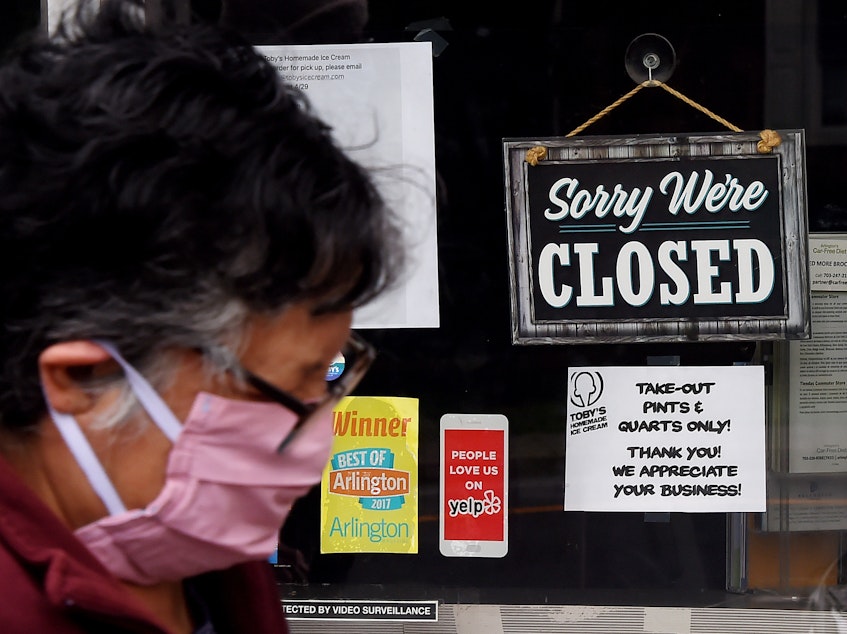U.S. Chamber Of Commerce: Businesses Are Worried About Getting Sued As They Reopen

Several states and local governments are allowing businesses to reopen with certain restrictions and conditions regarding social distancing and cleaning measures.
But what happens when an employee gets COVID-19 on the job and says the employer should have done more to stop it?
The U.S. Chamber of Commerce says businesses are worried about being sued as they navigate reopening. The group says concerns about health privacy, age discrimination claims and requirements for providing personal protective equipment have employers anxious.
Senate Majority Leader Mitch McConnell, R-Ky., has warned of an "avalanche of lawsuits" against businesses and said he wants liability protections in new coronavirus aid measures.
Democrats have called it a "nonstarter."
Sponsored
Remington Gregg of Public Citizen, a progressive consumer advocacy group, told NPR last week that McConnell's proposal would "make it even more difficult for workers to ensure that they were in safe working environments."
Neil Bradley, the Chamber's executive vice president and chief policy officer, talked with Morning Edition's Noel King about the business lobbying group's concerns. Here is an excerpt:
Is there real concern about frivolous lawsuits with all of the people, the millions of people out of work right now, who desperately want to get back to work? Is there evidence that frivolous lawsuits are happening?
There are. We're already tracking over 300 different lawsuits that have already been filed in this period where things have closed down. In some states we're seeing advertisements on TV by trial lawyer firms actually looking for people to become clients so they can go sue someone. So it's not a theoretical concern.
NPR's done a lot of reporting about people who have been told they have to report to unsafe workplaces. I'll use as an example, meat packing plants have seen these huge outbreaks. Won't your lobbying just make it harder for ordinary people to have any legal recourse to protect themselves?
Sponsored
No. And it's important to understand what we're asking for here. We're not asking for some type of immunity. We're asking for a safe harbor. So the CDC, OSHA, state public health authority issues recommendations. A business does its best to comply with those recommendations. That should be a safe harbor for them against those type of frivolous lawsuits.
If a business is grossly negligent, if they are willfully forcing workers to work in unsafe conditions, then they don't have that liability protection. No one wants to protect bad actors here, but businesses who are trying to do the right thing shouldn't be second-guessed a year later in a court of law.
Listen to the full interview here. [Copyright 2020 NPR]



